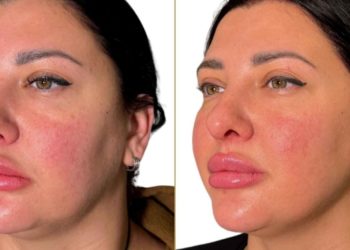The road to recovery after any surgery can leave you feeling overwhelmed and vulnerable, but none more so than a medical abortion. Whether you’re considering terminating a pregnancy or have already done so, look no further if you are seeking answers about medical abortion aftercare. We take a look at practical advice for pain management, what recovery is like, when you can return to work, and more.
How to manage pain and discomfort after abortion
Medical abortion is considered to be a low-risk method of terminating a pregnancy within the first ten weeks. It is non-invasive and can be performed at home using drugs, to induce a natural miscarriage. It is for this reason that it is one of the most common methods of abortion. It requires you to take a combination of two different pills: mifepristone and misoprostol.
Mifepristone is the first medicine that needs to be administered. It should be taken as soon as possible. 24-48 hours after, misoprostol pills should be taken as directed by your healthcare professional – this may involve inserting them into the vagina. It is common to experience some bleeding and/or pain within 3 hours of consuming the misoprostol. Your healthcare practitioner may tell you that if you don’t experience these symptoms, that you take an additional misoprostol tablet. They will discuss this with you in detail and will provide clear instructions for you should this occur.
If you are eligible to receive services from the NHS, abortion is free. If you chose to go private, the cost of abortion pill in the UK will typically be between £500-600. The benefit of a private clinic is that it can provide you with shorter wait time, improved convenience, and even same day appointments in some cases.
When considering medical abortion, the worry at the forefront of women’s minds is often about pain. If you are struggling with cramps after taking the pills, you may find the following painkillers helpful:
- Diclofenac
- Codeine/cocodamol
- Paracetamol
Your doctor will provide you with appropriate pain relief. It is advised to consult your healthcare practitioner before taking any medicines you are unfamiliar with as they understand your medical history better.
How long does it take to recover after medical abortion?
Recovery time varies between individuals, however, it usually takes about 2 weeks. It’s important to understand that recovery is not limited to physical recovery; the process of medical abortion can be emotionally taxing and take a toll on mental wellbeing. You may experience:
- Bleeding: It’s common to have light to moderate bleeding for a few weeks, which will gradually subside.
- Cramping: Mild cramps may occur for a few days after the abortion.
- Fatigue: It’s normal to feel more tired than usual, so it’s essential to give your body proper rest for optimal recovery.
- Mood swings: It’s common to experience feelings of grief, guilt, relief, and a sense of loss. Choosing to terminate a pregnancy is not an easy decision, so be kind to yourself and try to use any support networks you have.
Alongside the most commonly reported symptoms mentioned above, you may experience other changes in your body. The process will affect everyone differently. If you notice anything abnormal, it’s advised to consult your doctor.
Do I need to visit the doctor again after abortion?
It’s advised to consult your healthcare practitioner if:
- After the second dose, you had no bleeding or only minor bleeding.
- After 2 weeks, the pregnancy test is faintly or strongly positive.
- If you haven’t had a period in 4 weeks.
- If the bleeding continues after 4 weeks.
Life after medical abortion
Choosing to have an abortion is rarely easy. It’s a very sensitive and personal choice, which can be physically and emotionally draining for even the strongest of people. Remember to be gentle with yourself and seek support from those around you. Whilst having an abortion can make you feel alone, you may be surprised by how many people can empathise with your feelings and are willing to help out in any way they can.


![7 Best POS Software in the UK [2026 Edition]](https://todaynews.co.uk/wp-content/uploads/2026/02/7-Best-POS-Software-in-the-UK-2026-Edition-360x180.png)








































































